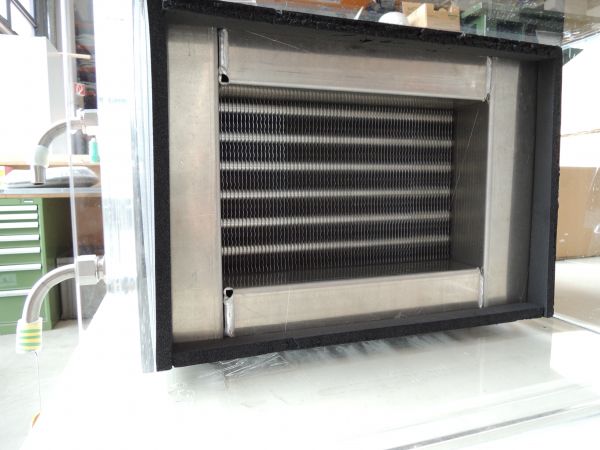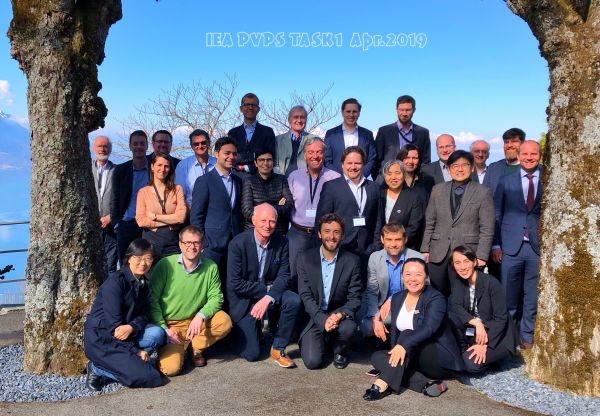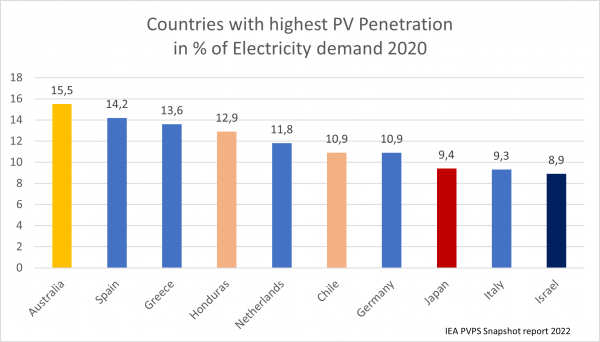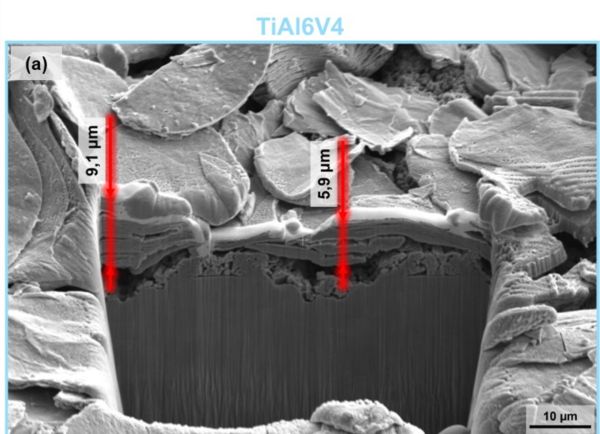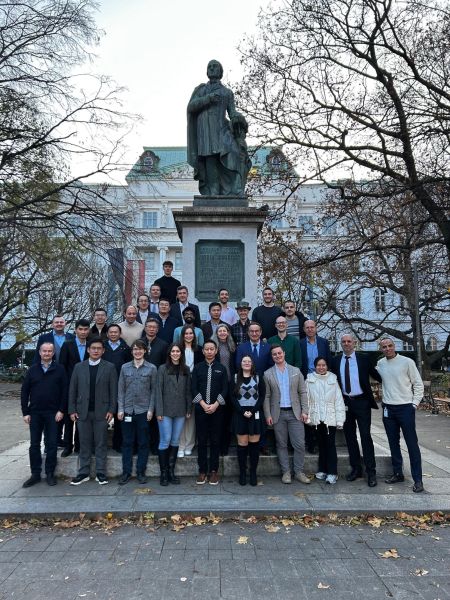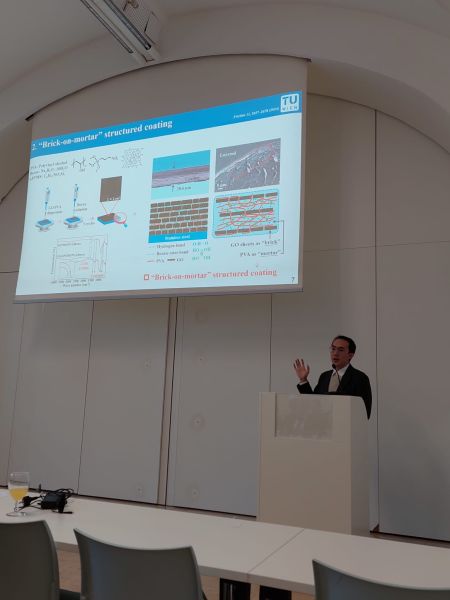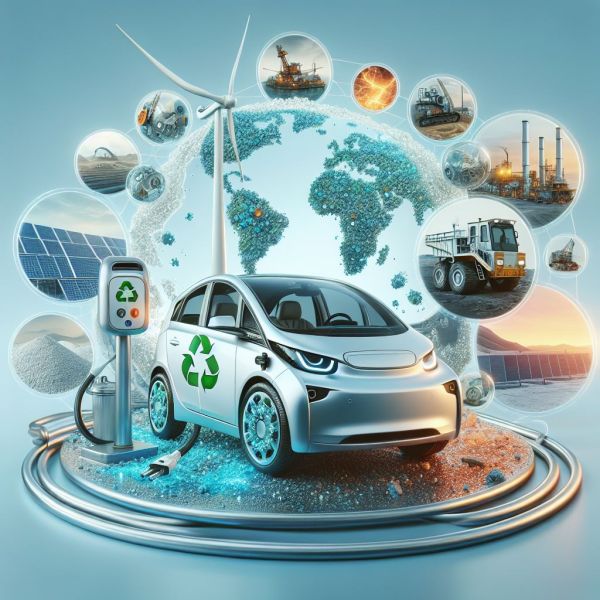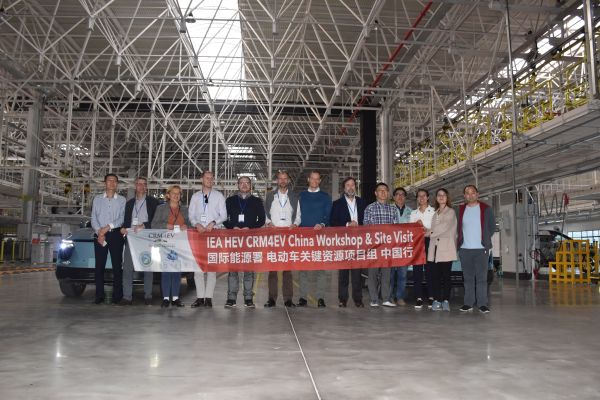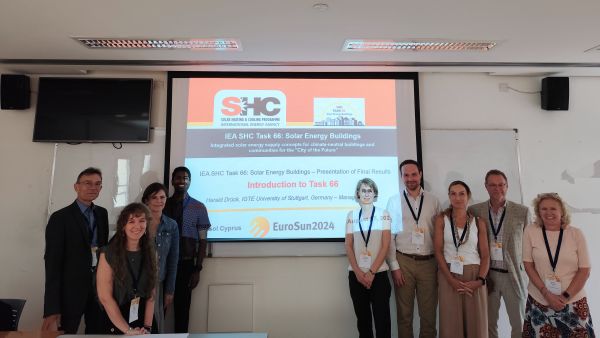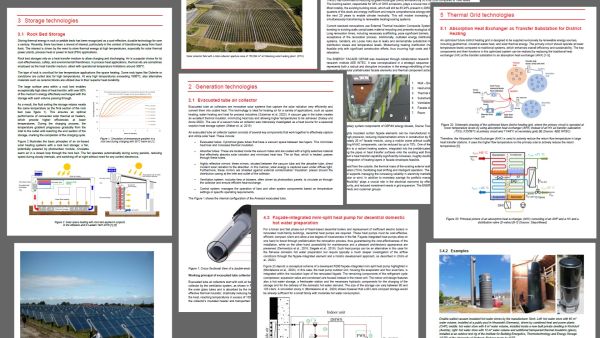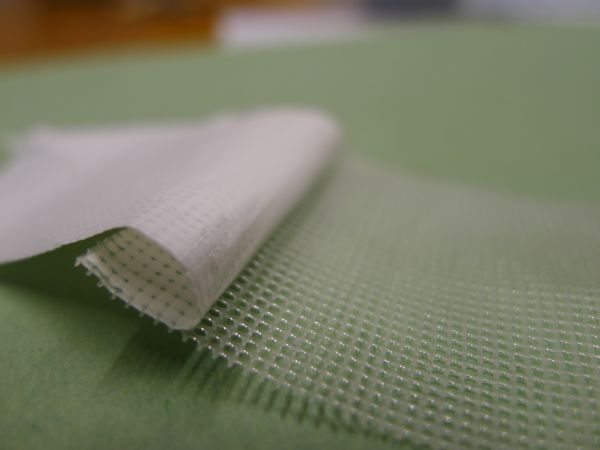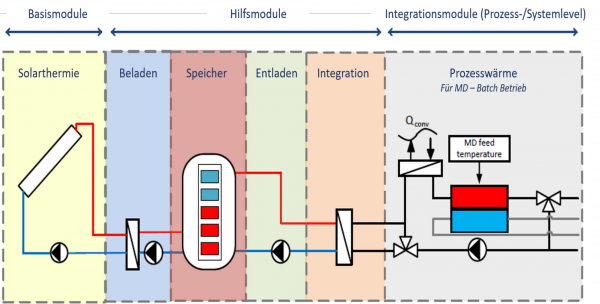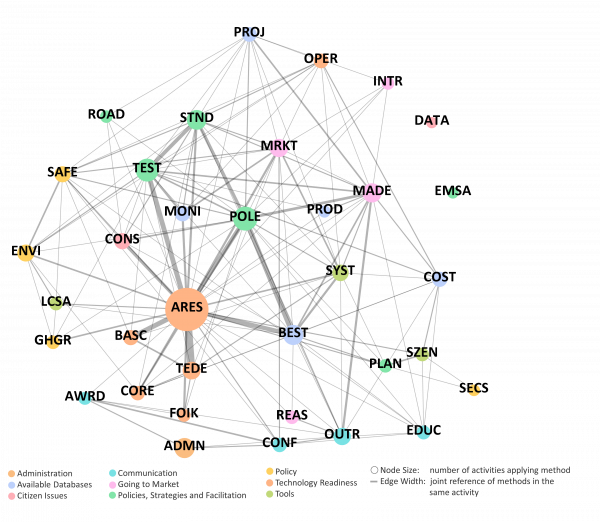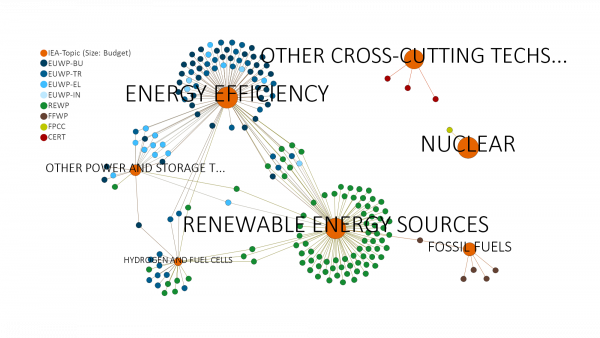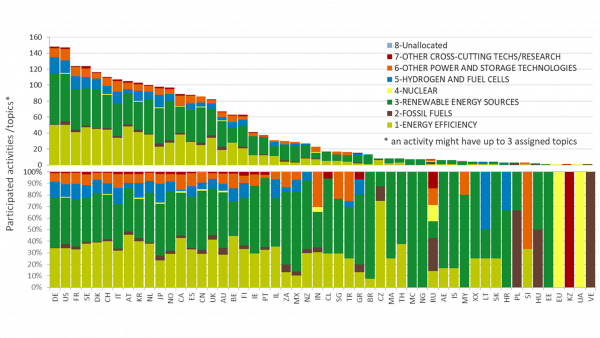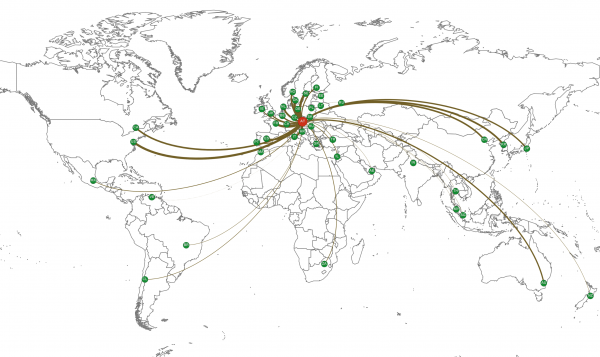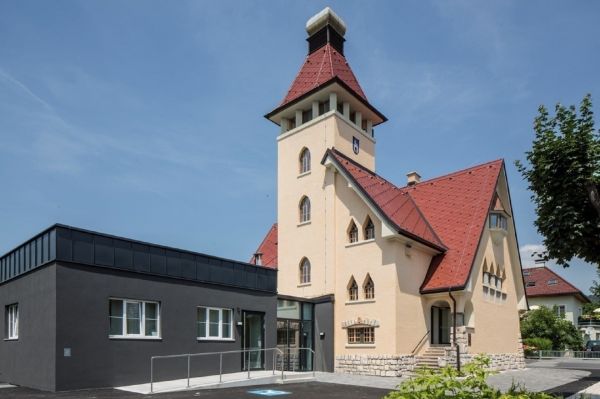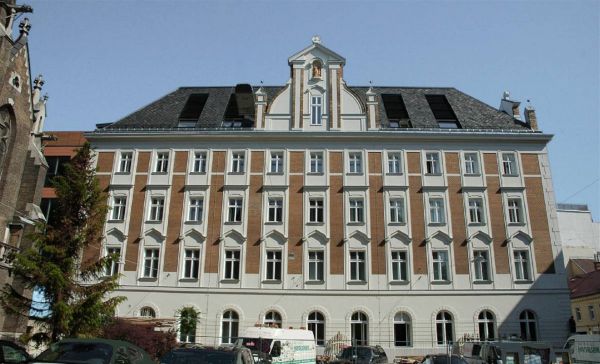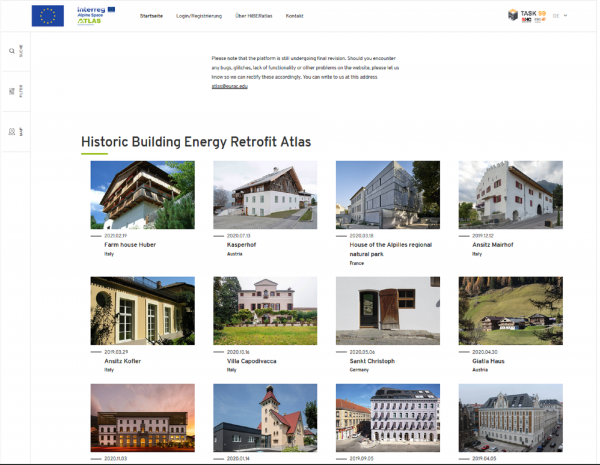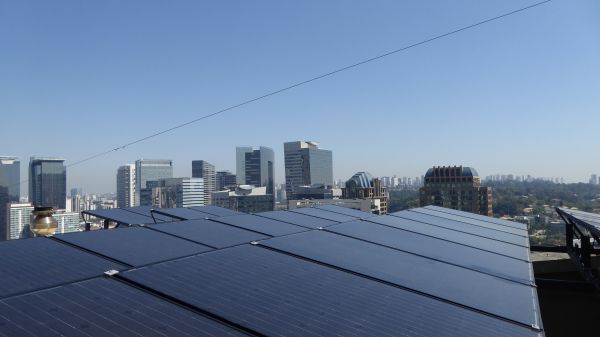Project Image Pool
There are 410 results.
Terms of use: The pictures on this site originate from the projects in the frame of the programmes City of Tomorrow, Building of Tomorrow and the IEA Research Cooperation. They may be used credited for non-commercial purposes under the Creative Commons License Attribution-NonCommercial (CC BY-NC).
CTfin heat exchanger
Copyright: AIT Austrian Institute of Technology, Center for Energy, Sustainable Thermal Energy Systems
PVPS Task 1
Group Picture at the PVPS Task 1 - Meeting in Montreux, Switzerland
Copyright: PVPS Task 1
Countries with highest PV penetration 2020 - worldwide
Countries with highest PV penetration 2020 - 5% of the world electricity is 2020 covered by PV
Copyright: IEA PVPS
Cross-sectional image of a laser-structured and coated steel surface
The image shows an FIB cross-section of a steel surface that has been structured using laser interference and then coated with a 2D material, in this case MXene as transition metal carbide Ti3C2. The individual MXene flakes deposited in the valleys of the laser structures are clearly recognisable.
Copyright: self-made
Group photo TU Vienna - Nanjing Symposium Tribology
In December 2024, the 3rd TU Wien-Nanjing Tribology Symposium was held at TU Wien with around 60 international guests on the topic of novel 2D materials and methods for reducing friction and wear. This is also the core topic of Task 12 within the AMT-TCP.
Copyright: Carsten Gachot
TU Vienna-Nanjing Tribology Symposium December 2024
Presentation during the 3rd TU Vienna-Nanjing Tribology Symposium.
Copyright: Carsten Gachot
Header image IEA TCP HEV Task 40
Header image IEA TCP HEV Task 40
Copyright: Erstellt durch JOANNEUM RESEARCH mit Image Creator Microsoft Designer
Group picture IEA Task 40
Representatives of IEA Task 40 during the Task-Workshop in Shanghai, China
Copyright: Xue Wang, Botree Cycling (China)
IEA SHC Task 66: Solar Energy Buildings – Presentation of final results
IEA SHC Task 66 “Solar Energy Buildings” presented the final results of their activities at the EuroSun Conference 2024 in Limassol, Cyprus, on Tuesday, 27 August, from 11:00 to 12:30 EEST. Over three years, an international team of scientists and industry representatives collaborated on the topic “Solar Energy Buildings.” The event featured presentations by the task manager, subtask leaders, and an industry representative. Dr. Harald Drück, Manager of Task 66 from the University of Stuttgart’s IGTE, provided an overview of the project and highlighted key achievements. Subtask leaders shared summaries of their findings: Prof. Frank Späte (OTH-AW, Germany) discussed key performance indicators for assessing solar energy buildings, while Elsabet Nielsen (Technical University of Denmark) showcased demonstration projects of completed solar energy buildings. Michael Gumhalter (AEE INTEC, Austria) explored current and future technologies in the field. Additionally, Zanil Narsing from Naked Energy Ltd. (UK) presented on "Solar Energy Buildings with Advanced Solar Thermal and Photovoltaic-Thermal (PVT) Collectors." More details on Task 66 are available on their website: https://task66.iea-shc.org/.
Copyright: AEE INTEC
Fact sheets for Solar Energy Building technologies
Fact sheets for technologies in the field of solar energy buildings were developed as part of IEA SHC Task 66 Subtask D to provide concise, easily accessible summaries of key solar technologies, helping stakeholders make informed decisions. They include information on advancements, comparisons, and suitability for different climates, building types, and regional requirements. Categorized into areas such as generation, storage, buildings, and grids, the fact sheets highlight integration strategies for effective solar energy systems. By referencing scientific publications and showcasing practical examples, they demonstrate the functionality and characteristics of selected technologies.
Copyright: AEE INTEC
Thermal Membran Technologies show Optimization Potential at membranes
Membranes are central components in thermal membrane technologies. IEA SHC Task 62 identified that further research and development is necessary to increase the membrane efficiecy for example by membrane modification, increase in selectivity.
Copyright: AEE INTEC
Systemintegration concept - Membrane Distillation and Solarthermal
Within the framework of the IEA SHC Task 62, system integration concepts have been developed, which represent the combination with solar thermal and processing technologies
Copyright: AEE INTEC
Combination of Methods used by TCP-Activities
A set of methods was developed to categorize the kind of project work that is done in the activities. The figure shows which methods are applied how often in total (node size), and which methods were frequently applied together (edge width) by activities. The color corresponds to the different method cate-gories described in chapter.
Copyright: Österreichische Energieagentur, 2018
IEA-Topics, Related Activities and Working Parties
IEA-topics on level 1 (orange, node size corresponds to the official RD&D budget 2015) and TCP-activities (non-orange nodes) and related TCP-working parties (see color code in legend).
Copyright: Österreichische Energieagentur, 2018
Participation of countries in IEA Technology Collaboration Programmes and Related Research Topics
Absolute (upper chart) and relative (lower chart) number of TCP-activities that countries are participating in. The color code shows how the assigned activities are related to the IEA-Topics and how the countries set their priorities with regard to the research topics (based on the IEA RD&D taxonomy).
Copyright: Österreichische Energieagentur, 2018
International cooperations of Austria in context of TCP activities.
Worldmap of Austrias cooperations with other countries in context of the IEA Technology Collaboration Program reasearch activities. Line thickness indicates the number of cooperations.
Copyright: Österreichische Energieagentur 2018
Music School Velden
Street view of the former fire station in Velden am Wörthersee - after the refurbishment used as a music school.
Copyright: blende16 /ARCH+MORE
Konvent Building Kaiserstrasse in Vienna
Street view of the convent building in Kaiserstrasse, Vienna after being refurbished with particular attention to monument preservation and to a new solution for renovating Viennese-type box windows.
Copyright: trimmel wall architekten
Historic Building Energy Retrofit Atlas
Starting page of the database www.HiBERatlas.com with best practice examples that show how historic buildings can be renovated so that high energy efficiency is achieved while respecting historic preservation.
Copyright: EURAC research Drususallee Bozen
uncovered PVT collector
In Brazil, Sao Paulo, uncovered PVT collectors reduce gas consumption for hot water heating by 50 % in a hotel project

